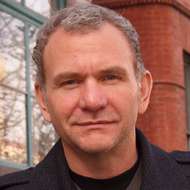A new GLO Discussion Paper finds substantial and rising gaps in the measurement of consumption and income based on household surveys and national accounts data.

GLO Discussion Paper No. 944, 2021
Mind the Gap – Download PDF
by Prydz, Espen Beer & Jolliffe, Dean & Serajuddin, Umar
GLO Fellow Dean Jolliffe
Author Abstract: Estimates of average per capita consumption and income from national accounts differ substantially from corresponding measures of consumption and income from household surveys. Using a new compilation of more than 2,000 household surveys matched to national accounts data, we find that the gaps between the data sources are larger and more robust than previously established. Means of household consumption estimated from surveys are, on average, 20 percent lower than corresponding means from national accounts. The gap with GDP per capita is nearly 50 percent. The gaps have increased in recent decades and are largest in middle-income countries, where annualized growth rates for consumption surveys are systematically lower than national accounts growth rates. We show that the gaps in measures across these two sources have implications for assessments of economic growth, poverty, and inequality. We find that typical survey measures of consumption and income may exaggerate poverty reduction and underestimate inequality.

GLO Discussion Papers are research and policy papers of the GLO Network which are widely circulated to encourage discussion. Provided in cooperation with EconStor, a service of the ZBW – Leibniz Information Centre for Economics, GLO Discussion Papers are among others listed in RePEc (see IDEAS, EconPapers). Complete list of all GLO DPs – downloadable for free.
The Global Labor Organization (GLO) is an independent, non-partisan and non-governmental organization that functions as an international network and virtual platform to stimulate global research, debate and collaboration.
Ends;

